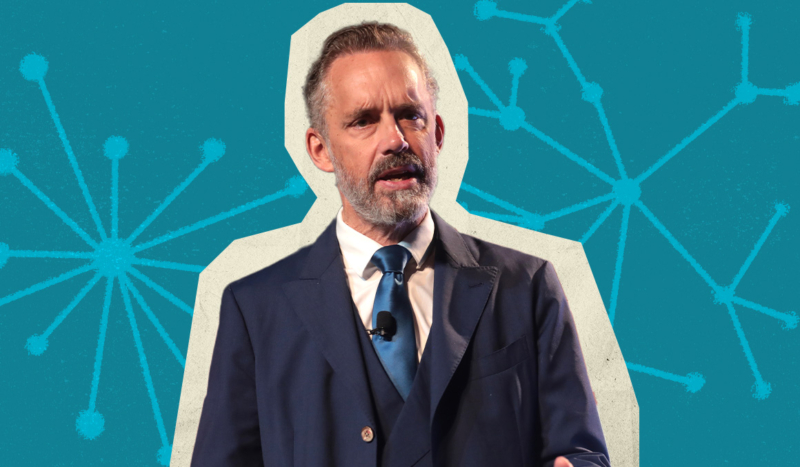
"Jordan Peterson" by Gage Skidmore, CC BY-SA 2.0, via Flickr
In an essay published in the journal First Things on October 31, Jordan B. Peterson and Jonathan Pageau discussed a vision of identity that counteracts modern views pitting the individual and community against one another.
Peterson is a Canadian psychologist and a popular conservative intellectual, while Pageau is a public speaker, icon carver, and Youtuber. The article is based on themes discussed at the Alliance for Responsible Citizenship (ARC) conference in London from October 30 to November 1, which drew more than 1,000 people to listen to speakers ranging from Peterson to Bishop Robert Barron and former House Speaker Kevin McCarthy.
Peterson and Pageau observed that people of the 20th and 21st centuries have struggled with a sense of identity, due not only to political divisions but also to the apparent division between the individual and the community as a whole.
The two authors noted that the need for individualism and the need for community often seem to be in conflict.
“The question of identity haunts us,” they wrote. “Whether individualists or collectivists, we often act as if these two vectors of identity are in competition with each other.”
Rather than setting these two views in opposition, Peterson and Pageau suggested focusing on “subsidiary identity,” an identity built on immediate relationships.
“To be a citizen is not to be a citizen of an abstract collective; it is to be a parent, a friend, a neighbor,” wrote Peterson and Pageau. “It is not in the constant suspicion of any common identity, but it is in celebrating and remembering our immediate bonds, our stories and rituals, our holidays, our monuments, that we can be anchored properly in the world.”
This concept is related to the Catholic principle of subsidiarity, which prioritizes local authority. According to subsidiarity, matters should be managed by the smallest, lowest, or least centralized competent authority possible.
“The subsidiary model always leads us higher,” Peterson and Pagaeu wrote. “By always aligning our vision beyond particularities, the very ones we unapologetically celebrate, by aiming toward virtue, but also in full knowledge of difference, of strangers, and of exceptions—that is, in compassion to those who do not fit with our ideals—that is how we maintain our subsidiary identities in service of the highest Good.”
In an essentially practical approach to the principle of subsidiarity, Peterson and Pageau suggested that if we prioritize what is local—our parish, schools, neighbors, and family members—we can develop a cohesive sense of identity that balances individuality with the whole.
“Rather than opposing that unity to an abstract collective, it is our very capacity to join the multiple into one that becomes a mirror of how we are parts of higher identities, not an abstract collective, but rather dancing within a cascade of unities, most immediately within our family units, our communities, our cities, and our religious communion,” they wrote.
This “cascade of unities” is an answer to the question of identity that plagues the modern world, according to Peterson and Pageau.
“Such an approach is the medication for existential angst, the source of the hope that abides. It is the shining star, beckoning in the distance. It is the only true alternative to lonely wandering in the desert and slave-like subjection to tyranny. It is the ultimate sacrificial gesture, the offering of our little stories to the harmony of the whole.”
Conservative author Rod Drehar contextualized the ARC conference in The European Conservative. Though he had his criticisms of the event, he noted, “This solidarity is even more important than the ARC founders could have foreseen when they began planning the meeting many months ago.”
“The pro-Hamas mass demonstrations happening throughout the West are shocks that still palpably reverberate among the people here. The Brits are especially hard hit,” he wrote, adding, “If they doubted the UK’s future before October 7, the apocalyptic unveiling of vast numbers of pro-terror, antisemitic Muslims living among them has been the bitterest blackpill imaginable.”
The ARC conference took place in the midst of protests showing support for Palestine, which is currently led by the terrorist organization Hamas, in the wake of Israel’s response of military action the October 7 Hamas terrorist attack. The Hamas attack has been called the most large-scale and deadly act of anti-Semitism since the Holocaust.
